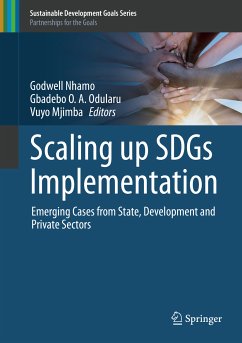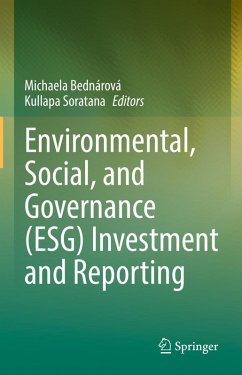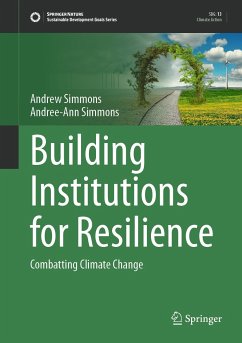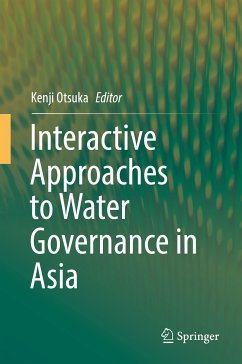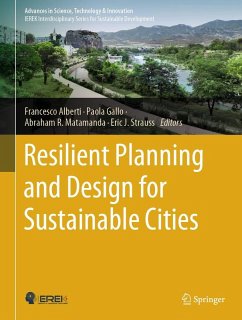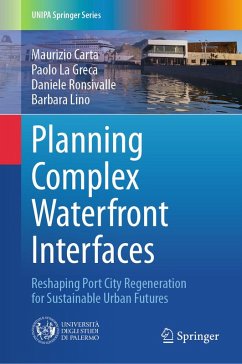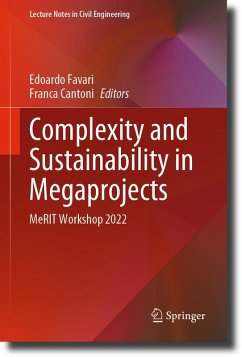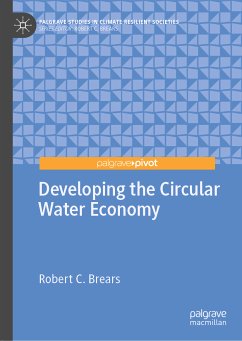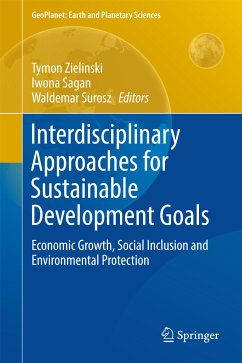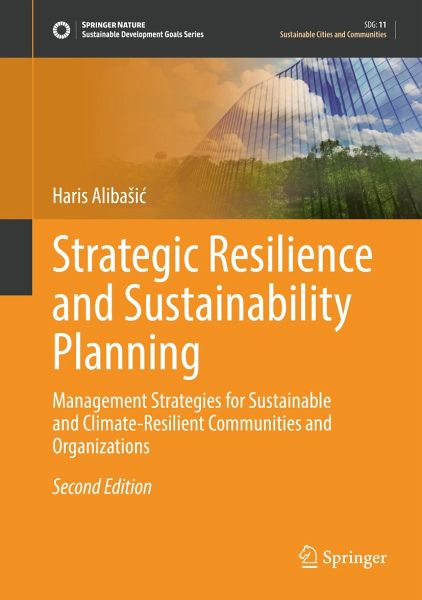
Strategic Resilience and Sustainability Planning (eBook, PDF)
Management Strategies for Sustainable and Climate-Resilient Communities and Organizations
Versandkostenfrei!
Sofort per Download lieferbar
80,95 €
inkl. MwSt.
Weitere Ausgaben:

PAYBACK Punkte
40 °P sammeln!
The book examines management strategies for developing and implementing strategic resilience and sustainability plans for sustainable and climate-resilient communities and organizations. It examines trends in resilience and sustainability planning, highlighting best practices and case studies. The book explores Quadruple Bottom Line strategies and methods to implement resilience and sustainability-related initiatives in organizations and communities. It also examines diverse perspectives on climate resilience, climate preparedness and readiness, greenhouse gas emission reductions policies, cli...
The book examines management strategies for developing and implementing strategic resilience and sustainability plans for sustainable and climate-resilient communities and organizations. It examines trends in resilience and sustainability planning, highlighting best practices and case studies. The book explores Quadruple Bottom Line strategies and methods to implement resilience and sustainability-related initiatives in organizations and communities. It also examines diverse perspectives on climate resilience, climate preparedness and readiness, greenhouse gas emission reductions policies, climate adaptation and mitigation, disaster preparedness and readiness, and sustainable energy policies and projects. Additionally, the book offers insights on strategic resilience and sustainability planning during a pandemic as well as private sector perspectives on strategic resilience and sustainability.
In chapter one,the author presents expanded definitions of strategic resilience and sustainability as well as mechanisms reshaping communities and organizations. Chapter two examines strategic planning processes for communities and organizations and lays out planning steps. Chapter three offers insights into community and organizational level engagement, looking at internal and external stakeholders, organizers, partners, collaborators, and implementers of distinct stages of strategic resilience and sustainability planning. Chapter four outlines measurements and tactics to track and improve strategic resilience and sustainability reporting mechanisms using the quadruple bottom line strategy. It offers a resilience progress report to ensure accountability, answerability, transparency, and good governance. Chapter five details the implementation of a strategic resilience and sustainability plan, describing programs and initiatives to achieve resilient and sustainablecommunities and organizations. Chapter six extensively examines the theoretical and practical intersection between climate change, resilience, and sustainability. Chapter seven reviews resources available for strategic resilience and sustainability plans to aid communities and organizations. Chapter eight assesses the current and future state of resilience and sustainability in communities and organizations, including concerns surrounding climate change, pandemics, disaster resilience, and emergency management and preparedness.
In chapter one,the author presents expanded definitions of strategic resilience and sustainability as well as mechanisms reshaping communities and organizations. Chapter two examines strategic planning processes for communities and organizations and lays out planning steps. Chapter three offers insights into community and organizational level engagement, looking at internal and external stakeholders, organizers, partners, collaborators, and implementers of distinct stages of strategic resilience and sustainability planning. Chapter four outlines measurements and tactics to track and improve strategic resilience and sustainability reporting mechanisms using the quadruple bottom line strategy. It offers a resilience progress report to ensure accountability, answerability, transparency, and good governance. Chapter five details the implementation of a strategic resilience and sustainability plan, describing programs and initiatives to achieve resilient and sustainablecommunities and organizations. Chapter six extensively examines the theoretical and practical intersection between climate change, resilience, and sustainability. Chapter seven reviews resources available for strategic resilience and sustainability plans to aid communities and organizations. Chapter eight assesses the current and future state of resilience and sustainability in communities and organizations, including concerns surrounding climate change, pandemics, disaster resilience, and emergency management and preparedness.
Dieser Download kann aus rechtlichen Gründen nur mit Rechnungsadresse in A, B, BG, CY, CZ, D, DK, EW, E, FIN, F, GR, HR, H, IRL, I, LT, L, LR, M, NL, PL, P, R, S, SLO, SK ausgeliefert werden.



